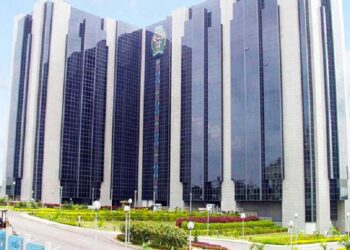The CEO of Extreme Mutual Technique Limited, Bome Ojoboh, stated that government support is crucial in building a sustainable energy future.
Ojoboh stated this to reporters while providing insights on harnessing Nigeria’s solar potential and the government’s crucial role in building a sustainable energy future.
He noted that one sector holds immense promise as Nigeria grapples with energy challenges: solar energy.
He explained, “If we want to grow Nigeria’s solar energy sector, the government needs to step in with supportive policies, incentives, and infrastructure. Right now, the solar industry is mainly funded by private investors, which limits its growth rate. If we want solar power to reach millions of Nigerians, the government must step in with supportive policies, incentives, and infrastructure.
“Nigeria is blessed with over 5.5 hours of sunlight daily, yet solar energy makes up less than two per cent of our energy mix. If you look at countries like Kenya, where the government has backed solar initiatives, solar energy now accounts for over 13 per cent of their total energy in just a few years. This shows how impactful government support can be in reducing costs and encouraging growth.”
Ojoboh believed one sure way the Nigerian government can Jumpstart people into investing in Solar energy systems is to offer tax breaks and remove import duty on solar energy, saying that “currently, we import over 90 per cent of our solar panels, inverters, and batteries, and import duties can add another 10 per cent to 20 per cent to the cost. If the government waived these fees, solar energy would be more affordable for homeowners and businesses.”
He added that another effective strategy would be to offer low-interest loans or subsidies to help people pay for solar installations, citing the example of India; this helped the Country grow its solar capacity by over 200 per cent in less than ten years. Nigeria could benefit from a similar approach, especially for small businesses that rely on expensive diesel generators.
He believed Nigeria could learn from Germany on long-term government incentives, which are essential and will help make solar power affordable and popular.
According to him, the potential of solar energy in Nigeria is enormous and untapped. Studies show we can generate over 200,000 megawatts (MW) of electricity from solar power annually. Our current electricity generation is only 13,000 MW, which is unreliable, with just about 4,000 MW consistently available.
“Solar power will not only fill this gap but surpass Nigeria’s current capacity. The government needs to take the necessary steps to make this happen.”
He noted that government investment in solar would greatly benefit Nigeria’s economy. He added that it would reduce the $14 billion businesses spend yearly on diesel, allowing them to invest that money elsewhere.
“Building a solar energy infrastructure could create thousands of jobs, from manufacturing equipment to system installation and maintenance. Also, solar power would help businesses reduce operating expenses, making them more competitive and profitable.”




